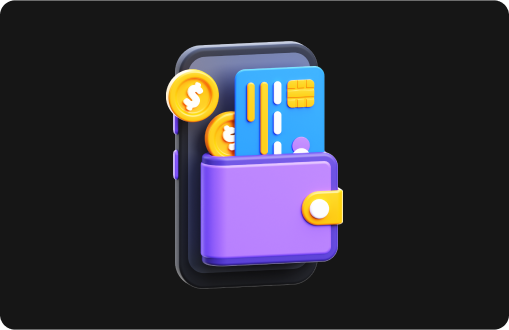Chapter 19: What is a smart contract wallet?
Understanding
Smart Contract
Wallets
A Comprehensive Guide

Introduction:
In recent years, smart contract wallets have emerged as a revolutionary tool in the realm of cryptocurrency and blockchain technology. These wallets offer unique functionalities and features that go beyond traditional cryptocurrency wallets. In this Chapter, we will delve into what smart contract wallets are, how they work, their advantages, and their potential applications.
Definition of Smart Contract Wallet: A smart contract wallet is a type of digital wallet that utilizes smart contract technology to enhance security, flexibility, and functionality. Unlike conventional wallets, which rely on private keys to access funds, smart contract wallets are governed by programmable smart contracts deployed on a blockchain network.
How Smart Contract Wallets Work: Smart contract wallets operate based on predefined rules and conditions encoded into smart contracts. These contracts are self-executing and automatically enforce predetermined actions when specific conditions are met. For example, a smart contract wallet can be programmed to require multi-signature authentication for large transactions or implement time-locked withdrawals.

Key Features of Smart Contract Wallets:
-
Multi-Signature Support: Smart contract wallets often support multi-signature functionality, allowing multiple parties to collectively manage and control funds. This feature enhances security by requiring consensus among designated signatories before executing transactions.1
-
Customizable Rules and Conditions: Users can define custom rules and conditions for their smart contract wallets, such as spending limits, transaction permissions, and withdrawal restrictions. This flexibility enables tailored solutions to meet diverse use cases and preferences.2
-
Automated Transactions: Smart contract wallets enable automated transactions based on predefined triggers or events. For instance, funds can be automatically transferred to designated addresses upon reaching a certain balance or timeframe.3
Advantages of Smart Contract Wallets:
-
Enhanced Security: Smart contract wallets leverage blockchain technology and cryptographic principles to provide robust security against unauthorized access and fraudulent activities.1
-
Increased Transparency:Transactions conducted through smart contract wallets are transparent and verifiable on the blockchain, promoting trust and accountability among users.2
-
Decentralization: Smart contract wallets operate on decentralized blockchain networks, eliminating reliance on centralized intermediaries and reducing counterparty risks.3
Potential Applications of Smart Contract Wallets:
-
Decentralized Finance (DeFi): Smart contract wallets play a vital role in the burgeoning DeFi ecosystem, facilitating automated lending, borrowing, trading, and yield farming activities.1
-
Tokenization:Smart contract wallets enable the issuance, management, and transfer of digital assets and tokens, supporting various tokenization initiatives across industries.2
-
Governance and Voting: Smart contract wallets can be utilized for decentralized governance mechanisms, allowing stakeholders to participate in decision-making processes through voting and consensus mechanisms.3
Conclusion:Smart contract wallets represent a significant advancement in digital asset management, offering unparalleled security, flexibility, and automation capabilities. As blockchain technology continues to evolve, smart contract wallets are poised to play a central role in shaping the future of finance, governance, and decentralized applications.

In the realm of cryptocurrencies, one fundamental aspect that every investor.



